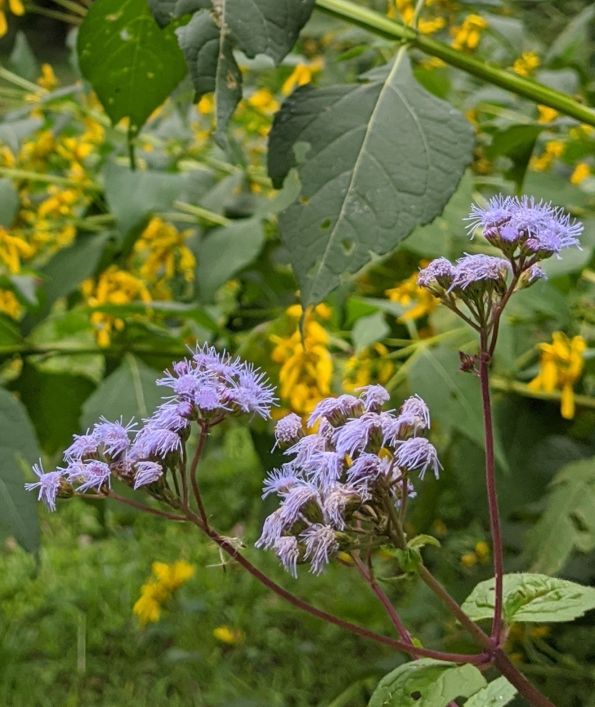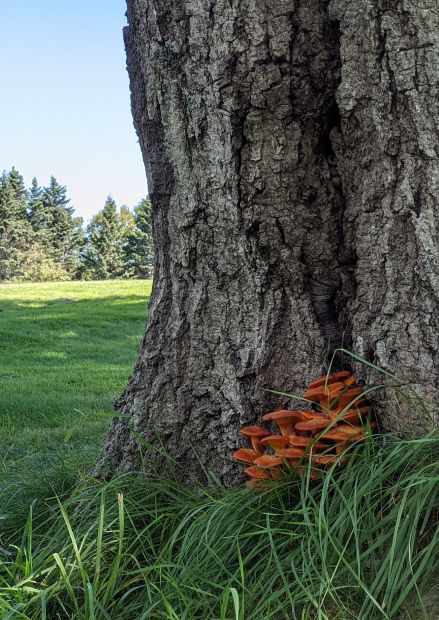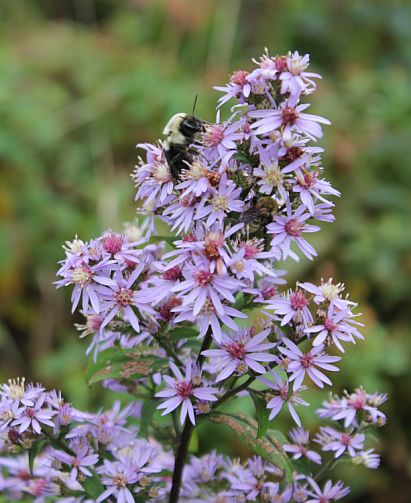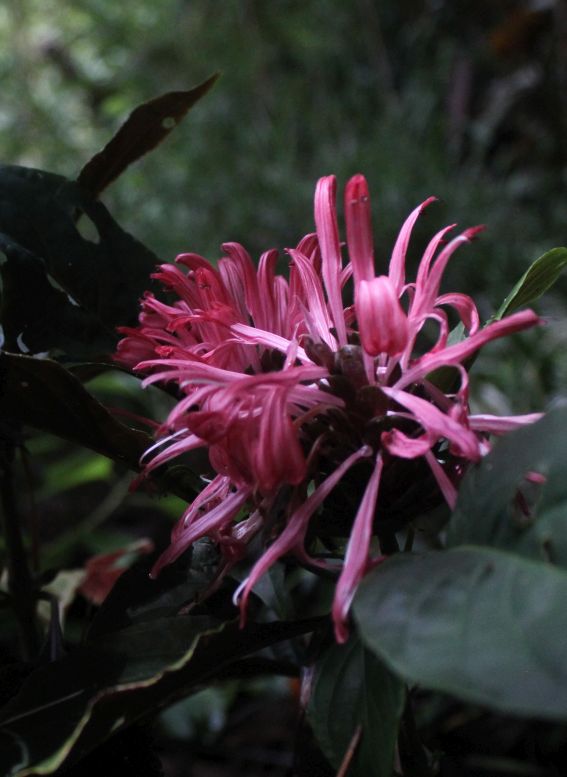-
The Call – Stroope/Herbert

Come, my Way, my Truth, my Life:
Such a Way, as gives us breath:
Such a Truth, as ends all strife:
Such a Life, as killeth death.
Come, my Light, my Feast, my Strength:
Such a Light, as shows a feast:
Such a Feast, as mends in length:
Such a Strength, as makes his guest.Come, my Joy, my Love, my Heart:
George Herbert
Such a Joy, as none can move:
Such a Love, as none can part:
Such a Heart, as joyes in love.The Call was first a poem penned by George Herbert (1593-1633), a poet, orator and priest of the Church of England. It is one of the dozens of poems in The Temple, published in the year of his death at age 39. Herbert is considered a Metaphysical poet noted for use of direct language in an abstract setting. The Call couples the metaphysical identities of Jesus articulated in 14:6 “I am the way, the truth, and the life” with the invitation of these identities into our lives, as found in the late verses of Revelation 22.
Ralph Vaughan Williams set The Call, along with other poems from The Temple, to music in Five Mystical Songs (1911) originally written for baritone voice [1]. This version of The Call has been employed in worship recently at ESUMC; it has also been adapted for use as a hymn, #164 in our current hymnal.
Z. Randall Stroope (b. 1953) published his implementation of The Call in 2006 (listen). True to the original text, it employs an up-beat major theme building to the end, with some use of syncopation.
Stroope is an American composer, conductor, and sometimes faculty member. He is said to have published over 190 works including choral and instrumental works.
__
- [1] Vaughan Williams has been discussed in these pages here.
- https://en.wikipedia.org/wiki/George_Herbert
- https://www.ccel.org/h/herbert/temple/Call.html
- https://en.wikipedia.org/wiki/Five_Mystical_Songs
- https://en.wikipedia.org/wiki/Z._Randall_Stroope
- https://www.zrstroope.com/
-
All Who Dwell In The Shadow of the Lord – Stroope

The text for Z. Randall Stroope’s All Who Dwell In The Shadow of the Lord (2010 – listen) is drawn loosely from Psalms 90 and 91 [1]. The text features “Lauda, Laudé!” repeated at the end of many of the lines [2]. This device is a play on words: Lauda is Italian for song, Laude its plural as well as the Latin word for praise, glory, honor (as in Magna Cum Laude). The precedent for the phrase is Simple Song from Leonard Bernstein’s polarizing Mass (1971), with Stephen Godspell Schwartz.
The phrase and idea “All who dwell in the shadow of the Lord find a refuge and fortress”, extracted from Psalm 91:1-2, is a fine bit of wordsmithing.
Z. Randall Stroope (b. 1953) is an American composer, conductor, and sometimes faculty member. He is said to have published over 190 works including both choral and instrumental projects.
__
- [1] Psalm 90 is source of Isaac Watts’ Oh God Our Help In Ages Past
- [2] Per http://rhetoric.byu.edu/Figures/Groupings/of%20Repetition.htm, this repetition is termed an epistrophe.
- https://en.wikipedia.org/wiki/Z._Randall_Stroope
- https://www.zrstroope.com/
-
There is a Balm in Gilead – Dawson
Is there no balm in Gilead?
Jeremiah 8:22a
No doubt you have heard by now that there is indeed a balm in Gilead, or at least there was, prior to the extinction of Commiphora opobalsamum [1]. This sturdy bush grew in the stony arid hills of Gilead, a region east of the Jordan that was the inheritance of the tribes of Reuben, Gad, and part of Manasseh. Resin from the bush was harvested for medicinal balms that were an economic engine for the region for more than 1000 years.
However powerful the balm was, it did not heal sin-sick souls. That would be the work of Jesus; so in this usage the Balm of Gilead is another personage of Jesus, like The Lion of Judah or The Good Shepherd. This use of metaphor, along with the nature of the tune and the words, suggest to me a date on the late end of the African-American Spiritual spectrum, and suggest a variety of influences on what came to be the hymn.
William Levi Dawson (1899 – 1990) was a composer and arranger specializing in African-American Spirituals among other musical achievements; he is also remembered for his contributions to the Tuskegee Institute musical programs, particularly the choir that he raised to international prominence. His There is A Balm In Gilead (1939 – listen), is a straightforward anthem arrangement of the hymn employing echo and solo voice features.
__
- Not Pistachia lentiscus, according to https://www.researchgate.net/publication/282748639_Frankincense_Myrrh_and_Balm_of_Gilead_Ancient_Spices_of_Southern_Arabia_and_Judea
- https://en.wikipedia.org/wiki/William_L._Dawson_(composer)
- https://en.wikipedia.org/wiki/There_Is_a_Balm_in_Gilead
-
Just us.

Parable of the Lost Sheep
Now all the tax collectors and sinners were coming near to listen to him. And the Pharisees and the scribes were grumbling and saying, “This fellow welcomes sinners and eats with them.”
So he told them this parable: “Which one of you, having a hundred sheep and losing one of them, does not leave the ninety-nine in the wilderness and go after the one that is lost until he finds it? And when he has found it, he lays it on his shoulders and rejoices. And when he comes home, he calls together his friends and neighbors, saying to them, ‘Rejoice with me, for I have found my lost sheep.’ Just so, I tell you, there will be more joy in heaven over one sinner who repents than over ninety-nine righteous persons who need no repentance.
Parable of the Lost Coin
“Or what woman having ten silver coins, if she loses one of them, does not light a lamp, sweep the house, and search carefully until she finds it? And when she has found it, she calls together her friends and neighbors, saying, ‘Rejoice with me, for I have found the coin that I had lost.’ Just so, I tell you, there is joy in the presence of the angels of God over one sinner who repents.”
Luke 15:1-10 NRSVUEIt’s easy enough to put ourselves in the shoes of the shepherd who ended up one sheep short, or of the woman who lost her coin, and we take some measure of joy when the lost things are found. I think, though, that these illustrations from a different time don’t hit with quite the desired impact in these times. When I think of loss/relief/rejoicing episodes, I think of
- watching your child at the lake, and she is suddenly not there, then a few seconds later casually swims out from under the pier
- learning that your loved one was not on that particular part of campus when the active shooter appeared
- confirming that the Marine Osprey that crashed in Afghanistan was not piloted by your nephew
That is gratefulness in finding. “Thank God,” we say, but I’m not sure it’s exactly what we mean.
So those situations, the ones just above, along with the original ones from Luke, are fine as far as they go, but in driving home the point Jesus was trying to make, I think they all fall a little short.
The issue for the Pharisees was that Jesus was consorting with sinners and other unsavories. Them, distinct from us. The point to be made is that Jesus doesn’t see any them, he only sees everyone, every single one, as us. “If you love those who love you, what credit is that to you? For even sinners love those who love them,” he teaches in Luke 6:32.
Both Christian essayists Max Lucado and James W. Moore arrived at the notion “If God had a refrigerator, your picture would be on it,” and that is charming to think about. The challenge for us, though, is not to take joy only when the various people that are pictured on our refrigerators end up safe and sound, but to view, as Jesus does, each of the messy others out there to be worthy of a spot on our crowded fridge and in our heart. There is no them. Just us.
-
The Lord is My Shepherd – Rutter

John Rutter (b. 1945) is certainly the preeminent name in English language choral music and likely needs little introduction to this audience. In addition to his many anthems (For The Beauty of the Earth) and eleven major works (Requiem, Mass of the Children), he has a particular affinity for Christmas music, with dozens of individual carols and multiple compendia with collaborator David Willcocks (1919-2015). The compendium 100 Carols for Choirs has been employed frequently by the Chancel Choir; there are 83 other Rutter entries in our library database.
Rutter formed The Cambridge Singers, a professional choir, in 1981 and has published several volumes of recorded music with that group.
Beyond its face-value merit, The Lord Is My Shepherd (listen) is interesting in that it was originally penned in 1978, then subsequently integrated into Requiem (1985) and later Psalmfest (1993).
Mikey Arichea returns to the instrumentalist role, this time providing the lyrical oboe part that accompanies the four-part choir and piano. Andrew Otto, currently a student at Broughton High School, accompanies on the piano.
__
- https://en.wikipedia.org/wiki/John_Rutter
- https://en.wikipedia.org/wiki/The_Lord_Is_My_Shepherd_(Rutter)
-
Lord, Thou Hast Searched Me – Helvey
Howard Helvey’s Lord, Thou Hast Searched Me (2011, listen) is an implementation of a very old (by American standards) hymn tune Tender Thought paired with a John Milton (1608-1674) paraphrase of Psalm 139:1-12. Per the music publisher MorningStar, this text is among Milton’s earliest documented writings, at age 15.

Tender Thought first appeared in Kentucky Harmony (1816 – Ananias Davisson), a shape-note songbook said to be the first from south of the Mason-Dixon line. Tender Thought can be seen in Kentucky Harmony here. Note the melody in the tenor line.
Howard Helvey (b. 1968) is a musician engaged on several fronts, having published numerous sacred choral works and involved in leading a church music program and a professional choir, guest conducting, and so on. He lives and works in Cincinnati. His Lord, Thou Hast Searched Me brings a fine accompaniment and obbligato to the traditional tune along with some variant takes on rhythm and harmonization.
Tender Thought as it appears in Kentucky Harmony is in the natural minor key (Aeolian mode). Helvey’s implementation uses the Dorian mode with the Major 6th instead of the minor 6th (except where flatted with accidental). The distinction is only apparent in the harmonization, as the Tender Thought melody itself does not include any 6ths.
___
- https://www.ecspublishing.com/lord-thou-hast-searched-me-psalm-139.html
- https://en.wikipedia.org/wiki/Kentucky_Harmony
- https://howardhelvey.com/biography/
-
On Making Pots
Old Testament Lesson for 04 September 2022: Jeremiah 18:1-11

Jeremiah received the Lord’s word: Go down to the potter’s house, and I’ll give you instructions about what to do there. So I went down to the potter’s house; he was working on the potter’s wheel. But the piece he was making was flawed while still in his hands, so the potter started on another, as seemed best to him. Then the Lord’s word came to me: House of Israel, can’t I deal with you like this potter, declares the Lord? Like clay in the potter’s hand, so are you in mine, house of Israel! At any time I may announce that I will dig up, pull down, and destroy a nation or kingdom; but if that nation I warned turns from its evil, then I’ll relent and not carry out the harm I intended for it. At the same time, I may announce that I will build and plant a nation or kingdom; but if that nation displeases and disobeys me, then I’ll relent and not carry out the good I intended for it. Now say to the people of Judah and those living in Jerusalem: This is what the Lord says: I am a potter preparing a disaster for you; I’m working out a plan against you. So each one of you, turn from your evil ways; reform your ways and your actions.
Jeremiah 18:1-11 CEBIn technology we use metaphor frequently as we are engaged in abstract concepts and endeavors and frequently need support and approval from those ensconced in the more real, less abstract world. We talk about how developing software is like constructing a building, or growing a crop. Sometimes software with hostile intent is a virus, or a tapeworm, depending on how it behaves. Information security is regularly compared to home security. In fact I think we rely less on metaphor in technology these days, as the workforce now has never known a world in which technology and its attendant development and maintenance is not a part of everyday life [1].
The role of the metaphor is to make the abstract more accessible by employing familiar terms. In Jeremiah, the potter/clay metaphor is invoked to help God’s dazed, disheartened, and doubting Chosen People, exiled to Babylon, understand how and why this terrible thing could happen to them [2]. If the clay fails to become a beautiful pot, it can be a do-over. Likewise for the Judeans.
The clay and the potter is a popular metaphor in the Bible; you can see it plainly in Isaiah 68 and Romans 9, and see it suggested in other places as well. In 2 Corinthians 4:7, Paul famously refers to our earthly bodies “earthen vessels” or “clay pots”, entrusted in containing our true selves. Pottery was the concrete image for Biblical communicators and, perhaps as a consequence, there are scads of sermon illustrations involving, just like in Jeremiah, the potter and the clay.
One such illustration that has stuck with me over the years imagines the clay and the potter together with the potter’s wheel, just as in Jeremiah. To make the pot rise to life from the inert, spinning clay, the potter applies pressure from the outside of the nascent vessel, and pressure from the inside as well, in order to form up the walls and make beauty. Both pressures must be present and balanced, otherwise the clay will not respond. Pressure from the outside balanced by pressure from the inside. A vessel emerges.
I don’t know if life is harder today than it was in times past, but I’m pretty confident it is faster. Challenges and demands for our attention arrive constantly through our various devices. News no longer arrives in cycles, but constantly. Our favorite diversions, available at our fingertips, call to us. These pressures from the outside need to be met with pressures from the inside. We could insist on device-free periods. We can keep our commitment to date night. We can resist meaningless demands on our time that take us away from family, and remember that in the end, we really are in charge of what we do and don’t do.
And the vessel of our lives will emerge.
___
- [1] Linguistically I think “virus”, for example, along with “hub” and “gateway”, cease at some point to be metaphors and become instead additional true implementations of the term. Code that co-opts other code to make instances of itself really is a virus of sorts.
- [2] This is again the theodicy question as Krishna discussed in a recent sermon.
-
A Biography of Note – Ralph Vaughan Williams

- Vaughan Williams
- by Eric Saylor
- Oxford, 339 pages
The Wall Street Journal reports that Ralph Vaughan Williams’ 150th birthday is upcoming October 12, and that a new biography of the great composer has been released [1].
Vaughan Williams (1872-1958) is associated with 22 works in our current hymnal employing 11 hymn tunes. Of these 11, about half are harmonizations of traditional melodies (as mentioned in the Kingsfold post), half are original compositions. Included among the original compositions are favorites The Call (Come, My Way, My Truth, My Life), Sine Nomine (For All The Saints), and Randolph (God Be With You till We Meet Again). The Lark Ascending (listen) is said to be his most famous tune; Fantasia on a Theme by Thomas Tallis (listen), also popular, has been used in at least a half dozen movies (Master and Commander; Zea). His setting of Greensleeves (listen) is also a favorite of many. Vaughn Williams is well-represented in our choral library; some will remember Hodie, the Christmas major work, prepared and performed by the Chancel choir many years ago.
Vaughan Williams composed over six decades, and is noted for his affinity for folk song and his decided Englishness, thought to be derived from his teacher Sir Hubert Perry (composer of the hymn tune Jerusalem – just sung last week) and best friend Gustav The Planets Holst (Cranham – In The Bleak Midwinter), along with his Victorian home upbringing. His The English Hymnal of 1906 is still in use today. In addition to the sacred and secular songwork, he penned nine symphonies and five operas.
__
- [1] https://www.wsj.com/articles/vaughan-williams-book-review-composer-more-than-mere-pastoral-charm-11660922287?mod=Searchresults_pos5&page=1
-
Praise The Lord – Handel/Hopson

Hal Hopson (b. 1933) has been a prolific producer of all manner of sacred music over the previous few decades, including vocal solos, choral anthems, organ music, and larger works such as cantatas. His works are asserted to number in the thousands; our library at ESUMC includes 46 Hopson works for children, youth, and adult choirs as well as handbells and other instrumentals.
In Praise the Lord (1974 – listen), Hopson has extracted the best parts of two movements (Hail Judea, Happy Land duet, then chorus) of the Handel oratorio Judas Maccabeas (1746) and melded them into a lively two-minute anthem. This is a fine bit of engineering! While the text has the feeling of a Psalm in the high nineties, it is in fact Hopson’s invention and seems to emerge spontaneously from the spirit of Handel’s music.
George Frideric Handel (1685-1769) based Judas Maccabeas on the Jewish revolt from the Seleucid Empire in the second century BC as recounted in the deuterocanonical book 1 Maccabees. In addition to Praise the Lord, Judas Maccabeas is also the source of the hymn tune Judas Maccabeas heard in Thine Be the Glory each Easter. The tune is taken from movement 56: See the Conqu’ring Hero Comes. You can hear Robert Redford and Michael Kitchen sing the last line of See the Conqu’ring Hero Comes in the film Out of Africa (1985).
__
- https://en.wikipedia.org/wiki/Hal_Hopson
- https://en.wikipedia.org/wiki/Judas_Maccabaeus_(Handel)
- https://en.wikipedia.org/wiki/George_Frideric_Handel
-
Kingsfold Fantasia – Hakes

The Kingsfold hymn tune was published in 1893 in a compendium of English country songs; it is thought to date back to the middle ages. Ralph Vaughn Williams heard the tune in Kingsfold, England, and subsequently added the still-used harmony for use in the The English Hymnal of 1906 with the text I Heard the Voice of Jesus Say. The tune is minor but most of the harmonization is major, making it a suitable choice as well for O Sing a Song of Bethlehem. This text appears in the current Methodist Hymnal using the Kingsfold tune, along with Come, Let Us Use the Grace Divine and To Mock Your Reign, O Dearest Lord. Kingsfold’s meter is Common Meter Doubled [1], making it a possible substitute for a great many texts.
Kingsfold Fantasia (Derek K. Hakes, 2017 listen) is scored for flute, bells/hand chimes, and piano. The interpretation is a rich exchange between the three voices.
Mikey Arichea is a recent addition to the bass section of the Chancel Choir. He is additionally an accomplished flutist, having tired of the tuba in high school.
__
- [1] More on this another day.
- https://hymnary.org/tune/kingsfold_english